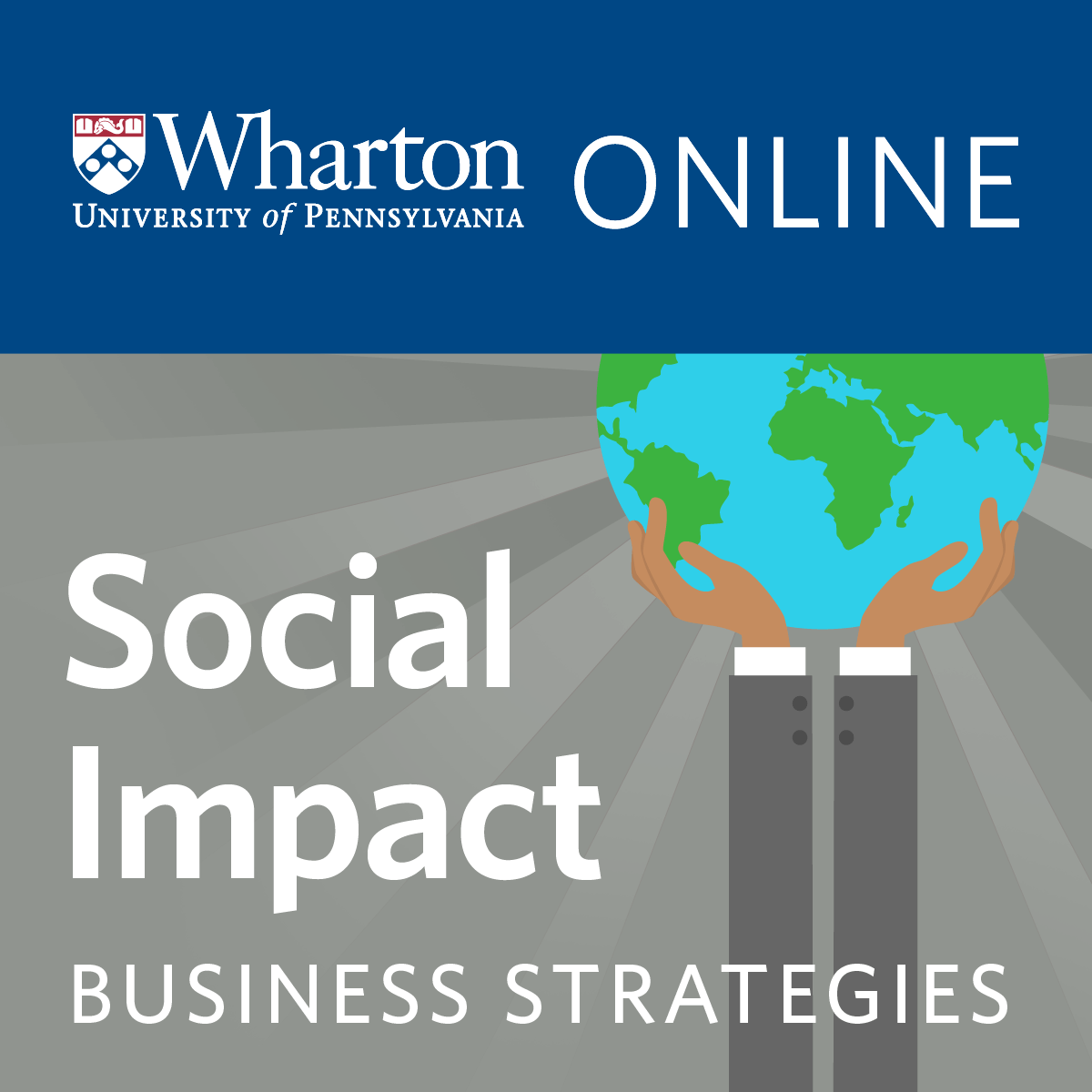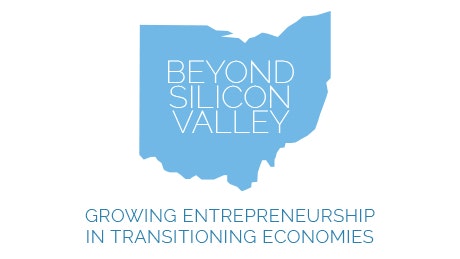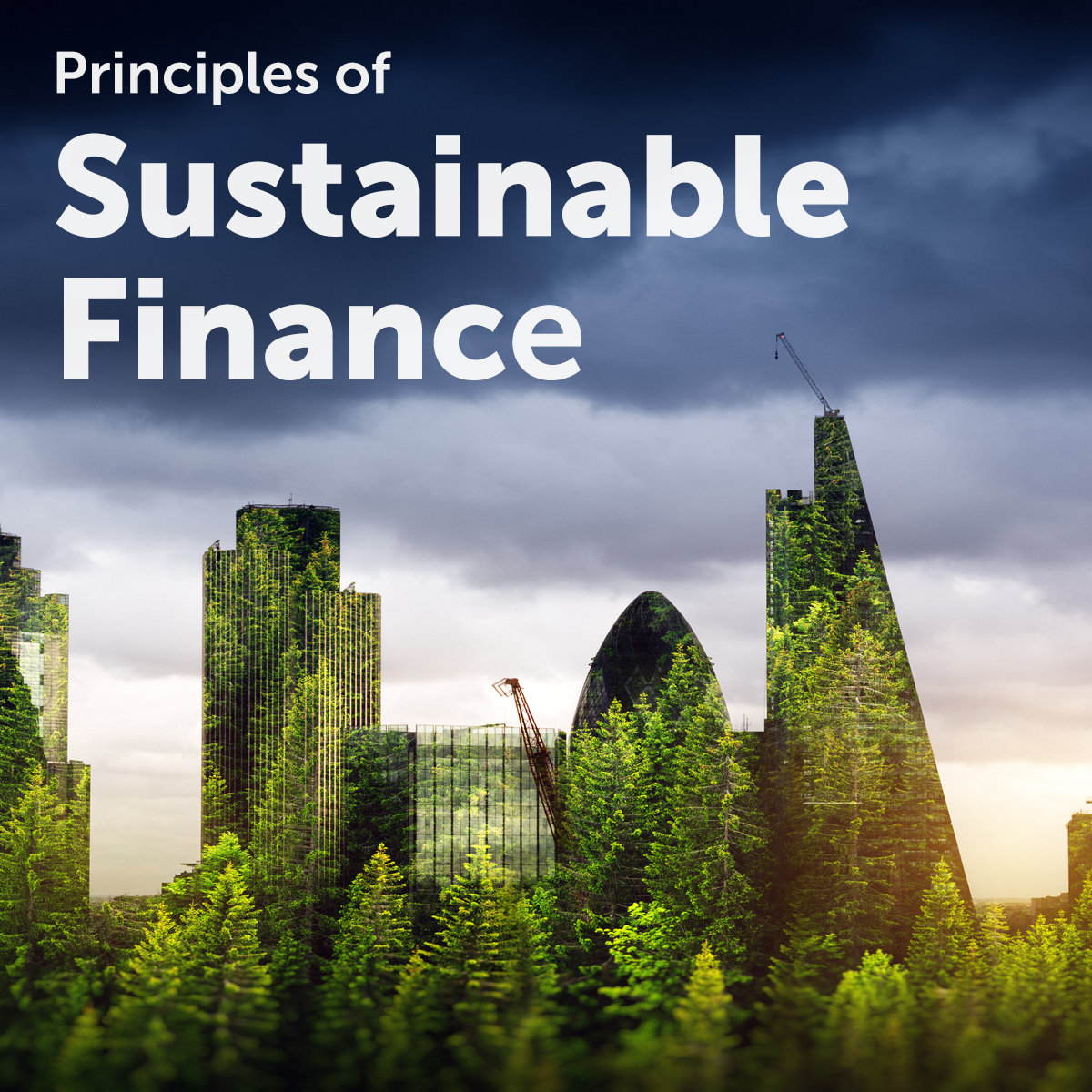Impact Investing
Comprehensive Guide to Impact Investing
Impact investing represents a growing movement within the financial world that seeks to generate positive, measurable social and environmental impact alongside a financial return. It challenges the traditional notion that financial returns and societal good are mutually exclusive, offering a path for individuals and institutions to align their capital with their values. This approach to investment empowers individuals to contribute to solutions for some of the world's most pressing challenges, such as climate change, access to healthcare, affordable housing, and sustainable agriculture.
What many find engaging about impact investing is its proactive and intentional nature. Unlike some forms of ethical investing that might focus on avoiding harm (negative screening), impact investing actively seeks out opportunities to create positive change. Furthermore, the field is dynamic and evolving, offering a chance to be part of innovative solutions and new financial models. The ability to see tangible results from one's investments, whether it's a renewable energy project coming online or an underserved community gaining access to essential services, can be incredibly rewarding.
Introduction to Impact Investing
This section provides a foundational understanding of impact investing, distinguishing it from conventional investment approaches and illustrating its real-world applications through various sectors.
Defining Impact Investing and Its Core Principles
Impact investing is defined by its intention to generate positive, measurable social or environmental impact alongside a financial return. This dual objective is a key differentiator from traditional investing, which typically prioritizes financial returns above all else. The Global Impact Investing Network (GIIN), a leading organization in the field, outlines core characteristics that define impact investing. These include intentionality, meaning investors must have a clear desire to contribute to social or environmental benefits.
Another core principle is the use of evidence and impact data in investment design. This means that investment decisions should be informed by data and designed to achieve specific, measurable outcomes. Furthermore, impact investors are expected to manage their impact performance, actively monitoring and reporting on the social and environmental outcomes of their investments. Finally, there's an expectation that impact investors will contribute to the growth and development of the industry itself.
For those new to the concept, imagine you have money to invest. Traditionally, you'd look for companies or ventures that are likely to make you the most profit. With impact investing, you still want to make a profit, but you also want your money to do something good for the world. So, you might invest in a company that builds solar panels, provides clean water to communities, or offers job training to unemployed individuals. You're aiming for both a financial win and a win for society or the environment.
These courses can help build a foundation for understanding the core tenets of impact investing and how businesses can create social value.
Key Differences from Traditional Investing
Traditional investing primarily focuses on maximizing financial returns for the investor. While some traditional investors might consider environmental, social, and governance (ESG) factors as part of their risk assessment, the ultimate goal remains financial gain. Impact investing, however, places social and environmental impact at the forefront of the investment thesis, alongside financial returns. This means an impact investor might choose an investment with a slightly lower financial return if it offers a significantly higher social or environmental impact.
Another key difference lies in the measurement and reporting of performance. Traditional investors track financial metrics like ROI (Return on Investment) and stock price. Impact investors track these as well, but they also develop and monitor metrics related to their intended social or environmental impact. This could include things like tons of CO2 emissions reduced, number of affordable housing units built, or number of individuals who received access to education or healthcare. The emphasis on measuring and reporting impact is a hallmark of the field.
Think of it like choosing a job. A purely traditional "investor" in their career might choose the job that pays the most, regardless of what the company does. An "impact investor" in their career would look for a job that not only pays well but also allows them to contribute to a cause they care about, like working for a non-profit, a socially responsible company, or in a field like education or healthcare. The decision isn't just about money; it's about making a difference too.
These resources provide further insight into the distinctions between impact investing and other investment approaches.
Examples of Impact Investment Sectors
Impact investments span a wide array of sectors, addressing diverse social and environmental challenges. Renewable energy is a prominent sector, with investments in solar, wind, and other clean energy technologies aimed at mitigating climate change. Affordable housing is another critical area, where impact investors finance projects to provide safe and affordable homes for low-income individuals and families.
Sustainable agriculture focuses on farming practices that are environmentally sound, socially equitable, and economically viable. Healthcare and education are also significant sectors, with investments aimed at improving access to quality healthcare services and educational opportunities, particularly in underserved communities. Microfinance, which provides small loans and financial services to entrepreneurs in developing countries, is a well-established area of impact investing. Other sectors include financial inclusion, sustainable forestry, water and sanitation, and community development.
Imagine a city. Impact investors might fund a new, energy-efficient bus line (renewable energy/sustainable transportation), help build new apartment buildings for families who can't afford high rents (affordable housing), support a local farm that uses eco-friendly methods (sustainable agriculture), or invest in a clinic that offers low-cost healthcare (healthcare). These are all different ways impact investing can help improve the city and the lives of the people in it.
Exploring courses focused on specific impact sectors or related themes like ESG can deepen understanding of practical applications.
Historical Evolution of Impact Investing
Understanding the roots of impact investing provides valuable context for its current state and future trajectory. This section traces its development from earlier forms of socially conscious investing to its more formalized structure today.
Origins in Socially Responsible Investing (SRI)
Impact investing did not emerge in a vacuum. Its origins can be traced back to earlier movements like Socially Responsible Investing (SRI). SRI has a long history, with roots in faith-based investing where certain religious groups avoided investments in industries like alcohol, tobacco, or gambling that conflicted with their values. In the 20th century, SRI gained further traction, particularly during periods of social upheaval like the anti-apartheid movement, where investors divested from companies doing business in South Africa.
SRI primarily utilized negative screening, meaning investors would exclude certain companies or industries from their portfolios based on ethical or social concerns. While this approach aimed to avoid harm, it didn't necessarily proactively seek to generate positive impact. Impact investing evolved from this foundation, shifting the focus from simply avoiding negative outcomes to actively pursuing positive ones. It represents a more direct and intentional approach to using capital for social and environmental good.
Think of it like choosing food. Early "socially responsible eaters" might have just avoided unhealthy junk food (negative screening). "Impact eaters," on the other hand, would actively seek out nutritious, locally sourced, and ethically produced food (proactive positive impact). Both want to be healthy, but the impact eater is more focused on making choices that also benefit their community and the environment.
Milestones in the 20th and 21st Centuries
The late 20th and early 21st centuries saw several key developments that paved the way for modern impact investing. The rise of microfinance in the 1970s and 1980s, pioneered by figures like Muhammad Yunus, demonstrated that providing financial services to the poor could be both impactful and financially sustainable. This was a crucial proof of concept for the idea of generating social returns alongside financial ones.
In the early 2000s, the term "impact investing" began to gain currency, and the field started to coalesce. Foundations and development finance institutions played a significant role in these early stages, exploring ways to use their endowments and capital to achieve their missions more directly. The Rockefeller Foundation is often credited with coining the term "impact investing" in 2007. The financial crisis of 2008 also spurred greater interest in investment approaches that considered factors beyond short-term profit.
The establishment of dedicated impact investing funds and networks further professionalized the field. The increasing awareness of global challenges like climate change and inequality also fueled demand for investment solutions that could address these issues. This period marked a shift from niche concept to a recognized, albeit still developing, investment strategy.
These resources delve into the broader context of finance and social impact, which are integral to the history of impact investing.
Role of Global Organizations
Several global organizations have been instrumental in shaping and growing the impact investing ecosystem. The Global Impact Investing Network (GIIN), founded in 2009, has played a pivotal role in building the industry's infrastructure. The GIIN works to increase the scale and effectiveness of impact investing by providing research, tools, and a platform for collaboration among investors. It also manages IRIS+, a system of standardized metrics for measuring and reporting social and environmental performance.
The United Nations has also been a significant influence, particularly through the Principles for Responsible Investment (PRI). Launched in 2006, the PRI initiative encourages investors to incorporate environmental, social, and governance (ESG) factors into their investment decisions and ownership practices. While distinct from impact investing, the PRI has helped to mainstream the consideration of non-financial factors in investment, creating a more receptive environment for impact investing. The UN's Sustainable Development Goals (SDGs), a set of 17 global goals to address poverty, inequality, climate change, and other challenges by 2030, have also become a widely adopted framework for impact investors to align their strategies and measure their contributions.
These organizations act like the architects and city planners for the "city of impact investing." They help create the blueprints (standards and frameworks), build the roads and bridges (networks and platforms), and set the rules of the road (principles and guidelines) to ensure that the city grows in an organized and effective way, ultimately helping more people and the planet.
Understanding the role of these organizations is crucial for anyone looking to engage seriously with impact investing.
Core Principles and Frameworks
To effectively engage in impact investing, it's crucial to understand the foundational principles and the frameworks that guide its practice. This section delves into the key elements that define and structure impact investments.
The Three Pillars: Intentionality, Measurement, and Return Expectations
Impact investing rests on three key pillars. The first is intentionality. This means that the investor must have a clear and stated intention to generate positive social or environmental impact through their investment. This distinguishes impact investing from investments that may incidentally produce positive outcomes but were not designed with that primary purpose.
The second pillar is measurement. Impact investors commit to measuring and reporting the social and environmental performance of their investments. This requires identifying relevant metrics, collecting data, and assessing progress towards the intended impact goals. This commitment to measurement is crucial for accountability and for understanding what works. The United Nations has also highlighted three guiding principles which include the expectation of financial return, the intention to tackle social or environmental challenges, and a commitment to measuring and reporting against the intended impact.
The third pillar relates to return expectations. Impact investments are expected to generate a financial return, which can range from below market rate to market rate or even above market rate. The specific return expectation will vary depending on the investor's goals and the nature of the investment. The key is that impact investing is not philanthropy; it is an investment strategy that seeks to achieve both financial and impact returns.
Imagine building a house. Intentionality is deciding beforehand that you want to build an eco-friendly house. Measurement is tracking things like how much recycled material you use, how energy-efficient the design is, and what your final energy bills look like. Return expectations in this analogy could be the financial value of the house, but also the "return" of living in a comfortable, healthy, and environmentally sound home.
These courses provide a deeper dive into the foundational principles of impact investing.
Common Frameworks (e.g., IRIS+ metrics, SDGs alignment)
To guide the practice of impact measurement and management, several common frameworks have emerged. IRIS+, managed by the GIIN, is a widely used system that provides a catalog of standardized metrics that investors can use to measure and report their social, environmental, and financial performance. IRIS+ helps to bring greater clarity, credibility, and comparability to impact data.
The United Nations Sustainable Development Goals (SDGs) have also become a prominent framework for impact investors. The 17 SDGs provide a comprehensive roadmap for global development, covering areas like poverty, hunger, health, education, climate action, and gender equality. Many impact investors align their investment strategies with specific SDGs, using them to identify impact themes and measure their contributions to global goals. Aligning with the SDGs helps investors communicate their impact in a globally recognized context.
Other frameworks and tools exist, often tailored to specific sectors or types of impact. The key is that these frameworks provide structure and a common language for defining, measuring, and managing impact, which is essential for the credibility and growth of the field.
Think of these frameworks as different types of rulers or measuring tapes. IRIS+ offers a very detailed set of specific measurements for different aspects of a project. The SDGs are like a set of broader goals – like wanting to build a "sustainable city" – and investors then use more specific measurements to see how their projects contribute to those bigger goals.
This course specifically addresses impact measurement in the context of the SDGs.
Balancing Financial Returns with Social Impact
One of the central considerations in impact investing is how to balance financial returns with social and environmental impact. This is not always a straightforward trade-off, and the approach can vary significantly among investors. Some impact investors prioritize impact above all else and are willing to accept lower, or "below-market," financial returns to achieve significant social or environmental outcomes. These are sometimes referred to as "impact-first" investors.
Other impact investors seek to achieve competitive, market-rate financial returns while also generating positive impact. These "finance-first" impact investors believe that it's possible to achieve both objectives without significant compromise. The reality is that there's a spectrum of approaches, and the "right" balance depends on the individual investor's mission, values, and financial goals.
Successfully navigating this balance requires careful due diligence, robust impact measurement, and a clear understanding of the potential financial and impact outcomes of an investment. It also involves being transparent about return expectations and how impact considerations are factored into investment decisions. The ongoing debate and innovation in this area are part of what makes impact investing a dynamic and evolving field.
Imagine you're a chef opening a restaurant. You want to make delicious food (social impact – making people happy and nourished) and also make a profit (financial return). You might choose to source expensive, high-quality, local ingredients. This could increase your costs and potentially lower your profit margin, but it improves the quality of your food and supports local farmers (higher social impact). Or, you might find a way to use less expensive ingredients creatively to still make great food and maintain a higher profit. Finding that sweet spot is the challenge and art of balancing both goals.
The following courses explore innovative financial models and strategies that can help achieve both financial and social goals.
Impact Investment Strategies and Instruments
Impact investors employ a variety of strategies and financial instruments to deploy capital and achieve their dual objectives of financial return and positive impact. This section explores some of the common approaches and provides examples of how they are applied.
Equity, Debt, and Blended Finance Models
Impact investments can be made across various asset classes, similar to traditional investing. Equity investments involve taking an ownership stake in a company. Impact investors might provide equity to early-stage social enterprises or growth-stage companies with strong impact models. This approach allows investors to share in the financial success of the company while also influencing its social and environmental performance.
Debt financing involves lending money to organizations, which they repay with interest over time. This can take the form of loans to non-profits, community development financial institutions (CDFIs), or social enterprises. Debt is often used to finance specific projects, such as affordable housing developments or renewable energy installations. Fixed-income instruments like green bonds or social impact bonds are also forms of debt financing that are specifically designed to fund projects with positive environmental or social outcomes.
Blended finance is an increasingly important model that combines concessional (less than market-rate) capital from public or philanthropic sources with commercial capital from private investors. The concessional capital helps to de-risk investments or improve their financial viability, thereby attracting private investment to projects or regions that might otherwise be considered too risky or not sufficiently profitable. This approach is particularly relevant for mobilizing capital towards the Sustainable Development Goals in emerging markets.
Imagine you want to help a local bakery that uses sustainable ingredients and hires people from disadvantaged backgrounds. You could give them money in exchange for a share of their profits (equity). You could lend them money that they pay back with interest (debt). Or, a local government grant (concessional capital) might cover some of their startup costs, making it less risky for you to then lend them additional money (blended finance).
These courses provide insights into different financing mechanisms relevant to impact investing.
Thematic Investing (e.g., climate tech, gender equity)
Thematic investing is a strategy where investments are focused on specific social or environmental themes. This allows investors to concentrate their capital on areas where they have particular expertise or a strong desire to create change. Climate tech is a major thematic area, encompassing investments in technologies and solutions that address climate change, such as renewable energy, energy efficiency, sustainable transportation, and carbon capture.
Gender equity, or gender lens investing, is another growing theme. This involves investing in companies that promote gender equality in their leadership and operations, or that provide products and services that benefit women and girls. Other common themes include sustainable agriculture, affordable healthcare, education technology, financial inclusion, and circular economy solutions.
Thematic investing allows for a deep dive into specific issue areas and can foster innovation and the development of specialized expertise. It also helps investors to more clearly articulate their impact goals and measure their progress towards them.
Think of thematic investing like choosing a major in college. Instead of just "studying" (general investing), you pick a specific field you're passionate about, like "environmental science" (climate tech investing) or "sociology with a focus on equality" (gender equity investing). This allows you to become an expert in that area and make a more focused contribution.
The following resources touch upon themes relevant to impact investing, such as sustainability and social entrepreneurship.
Case Studies of Successful Impact Funds
Examining case studies of successful impact funds can provide valuable insights into how impact investing works in practice. These examples showcase the diversity of approaches, the types of impacts generated, and the financial returns achieved. While specific fund names are numerous and constantly evolving, we can discuss common characteristics of successful funds.
Many successful impact funds demonstrate a clear and compelling impact thesis, strong due diligence processes that integrate both financial and impact analysis, and robust systems for impact measurement and management. They often have deep expertise in their chosen sectors or themes and build strong relationships with the companies and organizations they invest in. For example, a fund focused on renewable energy in emerging markets might highlight its investments in solar mini-grid companies that are bringing electricity to off-grid communities, detailing both the financial performance of these companies and the number of households and businesses connected to clean energy.
Another example could be a fund dedicated to financial inclusion that invests in microfinance institutions or fintech companies providing accessible financial services to underserved populations. Such a fund would report on its financial returns as well as metrics like the number of new clients reached, the volume of loans disbursed, and the impact on clients' livelihoods. The GIIN's website and other industry publications often feature case studies and reports that provide concrete examples of impact investing in action.
Imagine a successful TV show about a chef who travels the world (the impact fund manager) finding amazing local cooks (the companies/organizations) and helping them open popular restaurants (achieving financial and social success). Each episode (case study) would show how the chef identified the cook, what challenges they overcame, how they designed the menu (investment strategy), and ultimately, how the restaurant became a hit, serving great food and benefiting the community.
These courses may offer frameworks or examples relevant to developing and managing impactful projects or funds.
Measuring and Reporting Impact
A defining characteristic of impact investing is the commitment to measuring and reporting on social and environmental performance alongside financial returns. This section explores the methods, tools, and challenges associated with this crucial aspect of the field.
Quantitative vs. Qualitative Metrics
Impact measurement involves both quantitative and qualitative approaches. Quantitative metrics are numerical and involve counting or measuring specific outputs and outcomes. Examples include the number of jobs created, tons of greenhouse gas emissions reduced, liters of clean water provided, or percentage increase in student test scores. These metrics provide concrete data points that can be tracked over time and, in some cases, compared across investments.
Qualitative metrics capture non-numerical information, often focusing on the depth, quality, and context of impact. This can involve case studies, interviews, surveys, and stories that describe the changes experienced by individuals or communities as a result of an investment. Qualitative data provides rich insights into the nuances of impact, stakeholder perspectives, and unintended consequences (both positive and negative). A comprehensive approach to impact measurement typically integrates both quantitative and qualitative methods to provide a holistic understanding of an investment's performance.
Imagine you're evaluating a new after-school tutoring program. Quantitative metrics would be things like how many students attend, how much their grades improve on average, and the cost per student. Qualitative metrics would involve talking to the students about how the program makes them feel about learning, asking teachers if they've noticed changes in students' confidence or participation, and understanding the personal stories of students who have benefited.
Tools for Impact Assessment (e.g., B Impact Assessment)
A variety of tools and frameworks are available to help investors and companies assess their impact. The B Impact Assessment is a free, confidential tool developed by B Lab that companies can use to measure their impact on their workers, community, environment, and customers. It provides a comprehensive framework for evaluating a company's overall social and environmental performance and is a requirement for companies seeking B Corp Certification.
As mentioned earlier, IRIS+ by the GIIN provides a catalog of standardized metrics that investors can select from to align with their impact goals and report on performance. Many organizations also develop their own proprietary impact assessment methodologies tailored to their specific investment strategies and objectives. The choice of tools often depends on the type of investment, the sector, the stage of the enterprise, and the specific impact goals being pursued.
Think of these tools like different diagnostic tests a doctor might use. The B Impact Assessment is like a comprehensive physical exam for a company, checking its overall health across various areas. IRIS+ is like a specialized blood test, providing specific data points on particular aspects of impact. Companies and investors choose the "tests" that are most relevant to understanding and improving their "impact health."
These courses touch upon ESG principles and sustainability, which are foundational to many impact assessment tools.
Challenges in Standardization and Transparency
Despite progress in developing tools and frameworks, challenges in impact measurement and reporting remain. One significant challenge is the lack of universal standardization. While frameworks like IRIS+ offer a common set of metrics, the specific metrics chosen and how they are defined and applied can still vary widely among investors. This can make it difficult to compare impact performance across different funds or investments.
Transparency is another ongoing challenge. While many impact investors are committed to reporting on their impact, the level of detail and public availability of this information can differ. Ensuring that impact claims are credible and backed by robust data is crucial for building trust and accountability in the field. "Impact washing," analogous to "greenwashing," where investments are marketed as impactful without genuine underlying substance, is a concern that the industry is actively working to address through clearer definitions, better standards, and more rigorous verification.
Addressing these challenges requires ongoing collaboration among investors, standard-setting bodies, and researchers to refine methodologies, promote best practices, and enhance the overall credibility and utility of impact data.
Imagine everyone trying to measure "healthiness" but using different scales – some use pounds, some use kilograms, some use a 1-10 subjective rating. It would be hard to compare who is "healthier." Similarly, in impact investing, if everyone measures "community benefit" differently, it's hard to compare which investment is truly having a greater positive effect. And if some people aren't honest about their "health" measurements (impact washing), it erodes trust in the whole system.
Career Opportunities in Impact Investing
The growth of impact investing has created a diverse range of career opportunities for individuals passionate about combining finance with social and environmental change. This section explores typical roles, required skills, and pathways into the field. If you're considering a career in this area, it's an exciting time, but it also requires dedication and a realistic understanding of the landscape.
Pivoting into impact investing, or starting a career in this field, can be immensely rewarding. You'll be part of a community striving to make a tangible difference. However, it's also a competitive field that often requires a blend of financial acumen and a deep understanding of social or environmental issues. Be prepared for a journey that may involve continuous learning and networking. Don't be discouraged if the path isn't always linear; your unique experiences and passion can be valuable assets.
Roles in Asset Management, Consulting, and NGOs
Career opportunities in impact investing exist across various types of organizations. Asset management firms that specialize in impact investing employ professionals in roles such as investment analysts, portfolio managers, and investor relations specialists. These roles involve sourcing and evaluating investment opportunities, managing portfolios to achieve both financial and impact goals, and communicating with investors.
Consulting firms also offer opportunities for those interested in advising clients (such as foundations, family offices, or corporations) on impact investing strategies, impact measurement, and due diligence. Roles might include sustainability consultant or ESG specialist. Non-governmental organizations (NGOs) and development finance institutions (DFIs) are also key players, often involved in pioneering new impact investment models, providing technical assistance to social enterprises, or managing impact-focused funds, especially in emerging markets. Roles here can be diverse, from program managers to investment officers.
Additionally, opportunities exist within social enterprises themselves, particularly in finance or strategy roles, as well as in research institutions, academia, and industry bodies like the GIIN. The field is dynamic, and new types of roles are continually emerging.
Think of a movie production. Asset managers are like the studio executives deciding which movies (investments) to finance and oversee. Consultants are like the script doctors or special effects supervisors, brought in for specialized advice. NGOs and DFIs might be like the location scouts or cultural advisors, especially for films set in unique or challenging environments. And the social enterprises are the actors and crew making the movie happen on the ground.
These career paths offer a chance to apply your skills in a purpose-driven way.
Skills Required (e.g., financial analysis, ESG knowledge)
A career in impact investing typically requires a blend of hard and soft skills. Strong financial analysis skills are often essential, including the ability to evaluate financial models, conduct due diligence, and understand investment structures. This is particularly true for roles directly involved in investment decision-making. Knowledge of Environmental, Social, and Governance (ESG) factors and how they can impact business performance and societal outcomes is increasingly important.
Beyond technical skills, impact investing professionals often need strong analytical and problem-solving abilities, excellent communication and interpersonal skills, and a passion for social and environmental issues. The ability to think creatively, adapt to new challenges, and work collaboratively is also highly valued. Depending on the role and sector, specific expertise in areas like renewable energy, sustainable agriculture, healthcare, or education may be beneficial. For those new to the field, demonstrating a genuine commitment to impact, perhaps through volunteer work, personal projects, or relevant coursework, can be a significant asset.
Building these skills takes time and effort. Online courses, like those found on OpenCourser, can be an excellent way to develop foundational knowledge in finance, ESG, and specific impact sectors. Consider supplementing coursework with real-world projects, internships, or networking within the impact investing community to gain practical experience and insights. Remember, every step you take to build relevant skills brings you closer to your career goals.
These courses can help develop some of the core skills needed in impact investing.
Entry Points: Internships, Fellowships, and Certifications
Breaking into the impact investing field can be competitive, but there are several common entry points. Internships with impact investing firms, social enterprises, or related organizations are a valuable way to gain practical experience, build your network, and learn about the industry firsthand. These opportunities can be found through university career services, industry job boards like those on the GIIN website, or by directly contacting organizations.
Fellowships are another potential pathway, often offered by foundations, academic institutions, or specialized programs. These can provide structured learning experiences, mentorship, and project-based work in impact investing. For those looking to enhance their credentials, various certifications are emerging. For instance, the CFA Institute offers a Certificate in ESG Investing, which can demonstrate specialized knowledge in this area. Other programs and certifications focus on sustainable finance or social entrepreneurship.
Networking is also crucial. Attending industry conferences, joining relevant online communities, and conducting informational interviews can help you learn about opportunities and make connections. For individuals transitioning from other careers, highlighting transferable skills and demonstrating a clear commitment to impact are key. It might take persistence, but the growing demand for talent in this sector means opportunities are expanding. Don't underestimate the power of proactive outreach and a well-articulated story about why you want to work in impact investing.
Consider exploring these related career paths that share common ground with impact investing.
Formal Education and Training Pathways
For those seeking a structured approach to building expertise in impact investing, formal education and specialized training programs offer valuable pathways. This section discusses relevant academic degrees, research opportunities, and professional certifications.
Relevant Degrees (e.g., sustainable finance, social entrepreneurship)
A growing number of universities are offering undergraduate and graduate degrees specifically focused on areas relevant to impact investing. Master's degrees in Sustainable Finance, Social Entrepreneurship, or Impact Investing itself are becoming more common. An MBA with a concentration in sustainability or social impact is also a popular route. These programs typically combine core finance and business principles with specialized coursework on ESG factors, impact measurement, sustainable development, and social innovation.
Other relevant fields of study can include environmental science or policy (for those interested in environmental impact), international development (for a focus on emerging markets), public policy, or economics with a sustainability focus. Even traditional finance or economics degrees can provide a strong foundation, especially when supplemented with elective courses, internships, or extracurricular activities related to impact.
When choosing a degree program, consider the faculty's expertise, the curriculum's focus, opportunities for experiential learning (like student-run impact investing funds or consulting projects), and the university's network in the impact investing space. Exploring finance and economics courses on OpenCourser can also help you identify areas of interest and build foundational knowledge before committing to a full degree program.
These courses offer a taste of topics often covered in sustainable finance and social entrepreneurship programs.
Research Opportunities in Academia
Academia plays a vital role in advancing the field of impact investing through research. Universities and research institutions are actively exploring various aspects of impact investing, including its financial performance, impact measurement methodologies, market development, and policy implications. For students and researchers, this presents opportunities to contribute to the knowledge base of this growing field.
Research opportunities can range from master's theses and doctoral dissertations to post-doctoral research positions and faculty research projects. Topics might include analyzing the effectiveness of different impact investment strategies, developing new frameworks for impact assessment, studying the role of impact investing in achieving the SDGs, or examining the challenges and opportunities for impact investing in specific regions or sectors. Engaging in research can provide deep expertise and contribute to shaping the future of the industry.
For individuals interested in pursuing academic research, look for universities with strong programs in sustainable finance, social impact, or related fields. Connecting with professors who are active researchers in impact investing can open doors to research assistantships or collaborative projects. Academic journals and conferences dedicated to impact investing and sustainable finance are also valuable resources for staying abreast of the latest research.
Integration with Professional Certifications (e.g., CFA Institute’s Certificate in ESG Investing)
Professional certifications can enhance credibility and demonstrate specialized knowledge in areas relevant to impact investing. The CFA Institute’s Certificate in ESG Investing is a globally recognized credential for investment professionals who want to develop expertise in how environmental, social, and governance (ESG) factors are incorporated into investment analysis and portfolio construction. This certification is particularly valuable for those in financial analysis, portfolio management, and wealth management roles who are looking to specialize in sustainable and impact-oriented investing.
Other certifications related to sustainability, corporate social responsibility, or specific impact sectors (like renewable energy or green building) can also be beneficial. Some universities and training providers offer specialized certificates in impact investing or social finance. These programs often provide a more focused and practical approach to skill development than a full degree program.
When considering certifications, evaluate their relevance to your career goals, the reputation of the issuing organization, and the curriculum covered. Certifications can be a valuable way to signal your commitment and expertise to potential employers, especially when combined with relevant education and experience. For those already in the finance industry, adding an ESG or impact-related certification can be a strategic move to pivot towards this growing area.
Exploring foundational ESG courses can be a good first step before pursuing formal certifications.
Challenges and Criticisms of Impact Investing
While impact investing holds significant promise, it is not without its challenges and criticisms. Acknowledging these issues is important for fostering a more robust, credible, and effective impact investing ecosystem. This section addresses some of the key concerns.
Greenwashing Risks and Accountability Gaps
One of the most significant criticisms leveled against impact investing is the risk of "impact washing" or "greenwashing." This refers to the practice of making exaggerated or misleading claims about the social or environmental impact of an investment or financial product. As investor demand for impact and sustainable options grows, there's a temptation for some to market their offerings as impactful without having the underlying substance, intentionality, or rigorous measurement practices to back up those claims.
Accountability gaps can exacerbate this problem. If there isn't clear, consistent, and transparent reporting on impact, it becomes difficult for investors to verify claims and hold fund managers or companies accountable for their stated impact goals. This can erode trust in the market and make it harder for genuine impact investments to stand out. Addressing this requires stronger industry standards, more robust verification mechanisms, greater transparency in reporting, and a commitment from all stakeholders to uphold the integrity of impact claims.
Imagine a food product labeled "all-natural" and "healthy." If there are no clear standards for what those terms mean, or if companies don't have to prove their claims, consumers can be easily misled. Similarly, in impact investing, without clear definitions and proof of impact, investors might be "buying" something that isn't as good for the world as they think.
Financial Return vs. Impact Trade-offs
The question of whether there is an inherent trade-off between financial returns and social/environmental impact is a long-standing debate in the impact investing field. Some argue that prioritizing impact will inevitably lead to lower financial returns compared to traditional investments that focus solely on profit maximization. Others contend that well-managed impact investments can achieve competitive or even superior financial returns, particularly as companies that address social and environmental challenges may be better positioned for long-term success and resilience.
The reality is complex and can depend on the specific investment strategy, sector, and market conditions. Some impact investments, particularly those targeting deep impact in underserved markets or pioneering new solutions, may indeed offer below-market financial returns. However, a growing body of evidence suggests that many impact investing strategies can deliver market-rate returns. The key is for investors to be clear about their own financial return expectations and impact priorities, and to conduct thorough due diligence to understand the potential trade-offs for any given investment. The perception of a necessary trade-off can sometimes deter mainstream investors, so ongoing research and transparent reporting on both financial and impact performance are crucial.
Think about buying a car. A super fuel-efficient electric car (high environmental impact) might be more expensive upfront (potential financial trade-off) than a traditional gasoline car. However, it could save you money on fuel in the long run and hold its value well, potentially offsetting the initial higher cost. The "trade-off" isn't always clear-cut and depends on how you weigh the different factors (cost, fuel savings, environmental benefit, resale value).
These books explore different investment philosophies, some of which touch upon balancing various factors in investment decisions.
Geographic and Sectoral Biases
Impact investing, like any investment field, can be subject to geographic and sectoral biases. Historically, a significant portion of impact investing capital has flowed to certain regions, often emerging markets, while other areas with significant needs may receive less attention. Similarly, some sectors, like renewable energy or microfinance, have attracted more impact investment than others, such as certain areas of social justice or biodiversity conservation.
These biases can arise from various factors, including perceived risk-return profiles, investor familiarity and expertise, the availability of scalable investment opportunities, and the presence of supportive infrastructure and policy environments. While it's natural for investors to focus on areas where they see the greatest potential for both impact and financial return, it's important for the field as a whole to be mindful of these biases and to actively seek opportunities to deploy capital more equitably across different geographies and impact themes.
Addressing these biases requires efforts to build capacity in underserved regions and sectors, develop innovative financial instruments tailored to different needs, and raise awareness among investors about a broader range of impact opportunities. Diversification, both geographically and sectorally, can also help to create a more resilient and comprehensive impact investing ecosystem.
Imagine a group of tourists all deciding where to go on vacation. If most of them only know about a few famous destinations (popular sectors/regions), those places will get very crowded, while other equally beautiful and deserving places (underserved sectors/regions) might be overlooked. The impact investing world needs "travel agents" (intermediaries and advocates) who can highlight these less-known but highly impactful "destinations."
This course addresses investing in emerging markets, a key area for impact investing but also one where geographic focus is pertinent.
The Future of Impact Investing
The field of impact investing is dynamic and continues to evolve. Looking ahead, several trends and developments are poised to shape its future trajectory, offering both exciting opportunities and new challenges. This section explores some of these key aspects.
Emerging Technologies (e.g., blockchain for transparency)
Technology is expected to play an increasingly significant role in the future of impact investing. For instance, blockchain technology holds potential for enhancing transparency and traceability in impact reporting. By creating immutable records of transactions and impact data, blockchain could help to verify impact claims and reduce the risk of impact washing. Data analytics and artificial intelligence (AI) can also be leveraged to better identify impact opportunities, assess risk, measure outcomes, and optimize investment strategies.
Digital platforms are making it easier for a wider range of investors to access impact investment opportunities, including through crowdfunding and robo-advisory services. Innovations in areas like remote sensing, IoT (Internet of Things), and mobile technology are also providing new ways to collect impact data more efficiently and effectively, particularly in sectors like sustainable agriculture and environmental monitoring.
As these technologies mature and become more widely adopted, they have the potential to improve the efficiency, effectiveness, and credibility of impact investing. However, it will also be important to address potential ethical considerations and ensure equitable access to these technological advancements.
Imagine a farmer using sensors (IoT) to track water usage and crop health, with that data automatically recorded on a secure digital ledger (blockchain) that investors can see. This provides real-time, verifiable proof of the farm's sustainable practices and its impact. This is how new technologies can make impact investing more data-driven and trustworthy.
Exploring courses on blockchain or artificial intelligence can provide context for how these technologies might be applied in finance and impact.
Policy Trends and Regulatory Shifts
Government policies and regulatory frameworks are increasingly recognizing and supporting the growth of impact investing. We are seeing a trend towards greater disclosure requirements for companies regarding their environmental, social, and governance (ESG) performance. This increased transparency can provide investors with better data for making impact-informed decisions. Some governments are also creating specific legal structures for social enterprises or offering tax incentives and other supportive measures for impact investments.
International agreements, such as the Paris Agreement on climate change and the UN Sustainable Development Goals, are also creating a powerful impetus for directing capital towards sustainable and impactful activities. As policymakers gain a deeper understanding of the potential of impact investing to address societal challenges, we may see further regulatory developments aimed at facilitating its growth and ensuring its integrity.
However, the policy landscape is still evolving and can vary significantly across jurisdictions. Advocacy efforts from the impact investing community will continue to be important in shaping supportive policy environments that encourage responsible and effective impact investing.
Think of governments as traffic controllers for the flow of money. They can create new "lanes" (legal structures for social businesses), offer "toll discounts" (tax incentives for impact investments), and put up "road signs" (disclosure rules) to help guide more money towards projects that benefit society and the environment.
Understanding public policy is relevant here, and OpenCourser offers resources in Public Policy.
Predictions for Global Market Growth
The global impact investing market has experienced significant growth over the past decade, and most predictions point towards continued expansion. The GIIN estimated the global impact investing market size to be USD 1.164 trillion in 2022. Projections suggest the market could reach several trillion U.S. dollars in the coming years. This growth is driven by several factors, including increasing investor demand (from both institutional and individual investors), a greater awareness of pressing social and environmental challenges, and the growing body of evidence demonstrating that impact investments can achieve both financial and impact returns.
Emerging markets are expected to continue to be a significant area of growth, offering substantial opportunities for impact. Thematic investing, particularly in areas like climate solutions and healthcare, is also likely to see strong growth. As the market matures, we can also expect to see greater product innovation, more sophisticated impact measurement and management practices, and increased mainstreaming of impact considerations within the broader financial industry.
While the growth trajectory is positive, realizing the full potential of impact investing will require overcoming existing challenges related to standardization, impact washing, and ensuring that capital flows to where it is most needed. The GIIN's "Roadmap for the Future of Impact Investing" outlines key actions to enhance and scale the industry.
Imagine impact investing as a small but rapidly growing tree. With more sunlight (investor interest), water (capital), and good soil (supportive policies and infrastructure), this tree is expected to grow much larger and bear much more fruit (positive impact) in the future, helping to create a healthier planet and society.
These courses touch on global trends and future-oriented financial topics.
Frequently Asked Questions (Career Focus)
Navigating a career in impact investing can bring up many questions, especially for those new to the field or looking to transition. This section addresses some common queries to provide clarity and support. Embarking on this path requires diligence, but the alignment of your professional life with your values can be deeply fulfilling.
How to transition from traditional finance to impact investing?
Transitioning from traditional finance to impact investing is a common aspiration and a feasible path. Start by deeply understanding the impact investing landscape, its key players, terminology, and frameworks. Networking is crucial: attend industry events (virtual or in-person), connect with professionals in the field on platforms like LinkedIn, and conduct informational interviews to learn about different roles and organizations. Identify your transferable skills from traditional finance – financial analysis, modeling, due diligence, portfolio management, client relations – and articulate how they apply to impact investing roles.
Consider specializing in a particular impact sector (e.g., renewable energy, affordable housing, education) or theme (e.g., gender lens investing) that aligns with your interests and leverage any existing knowledge you have. Gaining relevant knowledge through online courses on impact investing, ESG, or sustainable finance can be very beneficial. You might find helpful resources by browsing finance and economics courses on OpenCourser and looking for those with a sustainability or social impact focus. Volunteer for organizations in the social sector to gain hands-on experience and demonstrate your commitment. Be patient and persistent; the transition may take time and involve starting in a role that bridges your traditional finance experience with your impact aspirations.
It's like learning a new dialect of a language you already speak. You have the foundational grammar and vocabulary (your finance skills), but you need to learn the specific nuances, idioms, and cultural context of the new dialect (impact investing). Immersion, practice, and learning from native speakers (networking and specialized education) are key.
What certifications enhance employability?
Several certifications can enhance your employability in the impact investing field by demonstrating specialized knowledge and commitment. The CFA Institute’s Certificate in ESG Investing is highly regarded and focuses on integrating ESG factors into investment analysis. This is particularly valuable for roles in asset management and financial analysis. Other certifications related to sustainable finance, such as those offered by various universities or professional organizations, can also be beneficial.
If your interest lies in specific impact sectors, certifications in those areas (e.g., renewable energy finance, green building credentials like LEED) can be advantageous. For those focused on impact measurement and management, familiarity with frameworks like IRIS+ or experience with tools like the B Impact Assessment is valuable, though formal certifications in these specific tools are less common than broader ESG or finance credentials. Always research the reputation and relevance of any certification to your specific career goals within impact investing. Combining certifications with practical experience and a strong narrative about your passion for impact will be most effective.
Think of certifications as specialized tools in your toolkit. A general finance degree is like a good hammer, but an ESG certificate is like a specialized wrench that shows you have expertise in a particular area that's in demand in the impact investing workshop.
Is prior NGO experience necessary?
Prior NGO experience is not strictly necessary to enter the impact investing field, but it can be very beneficial, especially for certain roles or for demonstrating a genuine commitment to social or environmental issues. Experience in the non-profit sector can provide a deep understanding of societal challenges, stakeholder engagement, program implementation, and impact measurement from a different perspective. This can be particularly valuable for roles that involve working closely with social enterprises or non-profit investees, or for positions in foundations or development finance institutions.
If you don't have direct NGO work experience, you can still demonstrate your commitment and understanding in other ways. Volunteer work, pro bono consulting for non-profits, serving on an NGO board, or conducting research on social issues can all be valuable. Highlighting any experience that showcases your passion for impact, your understanding of complex social systems, and your ability to work with diverse stakeholders will be helpful. The key is to show that your interest in impact is genuine and well-informed, regardless of whether your primary professional background is in the for-profit or non-profit sector.
It's like applying to be a food critic. Having worked as a chef (NGO experience) can give you invaluable insights, but you can also become a great food critic through extensive dining experience, studying culinary arts, and writing well (other ways to demonstrate passion and knowledge for food/impact).
Salary expectations vs. non-impact roles
Salary expectations in impact investing can vary widely depending on the type of organization, role, location, level of experience, and the organization's return philosophy (impact-first vs. finance-first). In some cases, particularly within non-profits, foundations, or early-stage social enterprises, salaries might be lower than comparable roles in traditional finance, especially at large investment banks or private equity firms. This is often due to different funding models and a greater emphasis on channeling resources towards impact.
However, as the impact investing market matures and more mainstream financial institutions enter the space, salary ranges are becoming more competitive, particularly for roles requiring strong financial expertise. In larger impact asset management firms or specialized teams within traditional financial institutions, compensation can be comparable to non-impact roles. It's important to research specific organizations and roles to get a realistic sense of salary expectations. While financial reward is a factor, many professionals are drawn to impact investing for the added dimension of purpose and the opportunity to contribute to positive change, which they may value alongside monetary compensation.
Think of it like choosing between a high-paying corporate law job and a job as a public interest lawyer. The public interest lawyer might earn less, but they derive significant satisfaction from their work's societal impact. In impact investing, there's a spectrum, and some roles offer both competitive pay and purpose, while others might involve a trade-off that individuals make based on their personal priorities.
How to evaluate impact investing employers?
When evaluating potential impact investing employers, it's crucial to look beyond just the job description and salary. Assess the organization's genuine commitment to impact. Examine their mission, values, and track record. How do they define and measure impact? Are their impact goals clearly articulated and integrated into their investment process, or do they seem like an afterthought? Look for transparency in their impact reporting and ask about specific examples of their investments and the outcomes achieved.
Consider the organization's culture and values. Do they align with your own? What is the team like, and what is their reputation in the industry? Investigate their investment strategy: what sectors and geographies do they focus on? What types of financial instruments do they use? What are their financial return expectations, and how do they balance these with their impact objectives? Talking to current or former employees, if possible, can provide valuable insights. Look for organizations that are respected within the impact investing community, perhaps by being members of networks like the GIIN or signatories to the PRI. Choosing an employer whose approach to impact resonates with you is key to a fulfilling career.
It's like choosing a travel buddy for a long journey. You don't just look at whether they have a car (the job); you want to know if they share your travel philosophy (impact approach), if they're reliable and honest (transparency and integrity), and if you'll actually enjoy spending a lot of time with them (company culture).
Remote work opportunities in the sector
Remote work opportunities in impact investing have become more prevalent, mirroring broader trends in the professional world, particularly since 2020. Many organizations, including asset managers, consulting firms, NGOs, and research institutions, now offer remote or hybrid work arrangements for various roles. This can expand the talent pool and provide greater flexibility for employees.
Roles that are more research-oriented, analytical, or involve independent project work may be more conducive to remote setups. However, even client-facing or team-based roles are increasingly being adapted for remote collaboration. When searching for positions, look for job postings that explicitly mention remote work options. Networking can also help uncover remote opportunities that may not be widely advertised. While remote work offers flexibility, it's still important to build strong connections with colleagues and stay engaged with the organization's mission and culture. For those passionate about impact investing but geographically constrained, the rise of remote work has certainly opened up more possibilities to contribute to the field from various locations. Job boards like those on the GIIN or ImpactAlpha sometimes list remote positions.
Think of it like attending a global university. With online learning (remote work), you can access world-class education (impactful job opportunities) from anywhere, as long as you have a good internet connection and the discipline to engage effectively from a distance.
Embarking on a journey into impact investing, whether as an investor or a career professional, is a commitment to a more thoughtful and intentional approach to finance. It's a field that is constantly learning, evolving, and striving to create a world where capital serves humanity and the planet in more profound ways. While challenges exist, the potential for positive change is immense, offering a path for those who wish to align their financial activities with their deepest values.




























